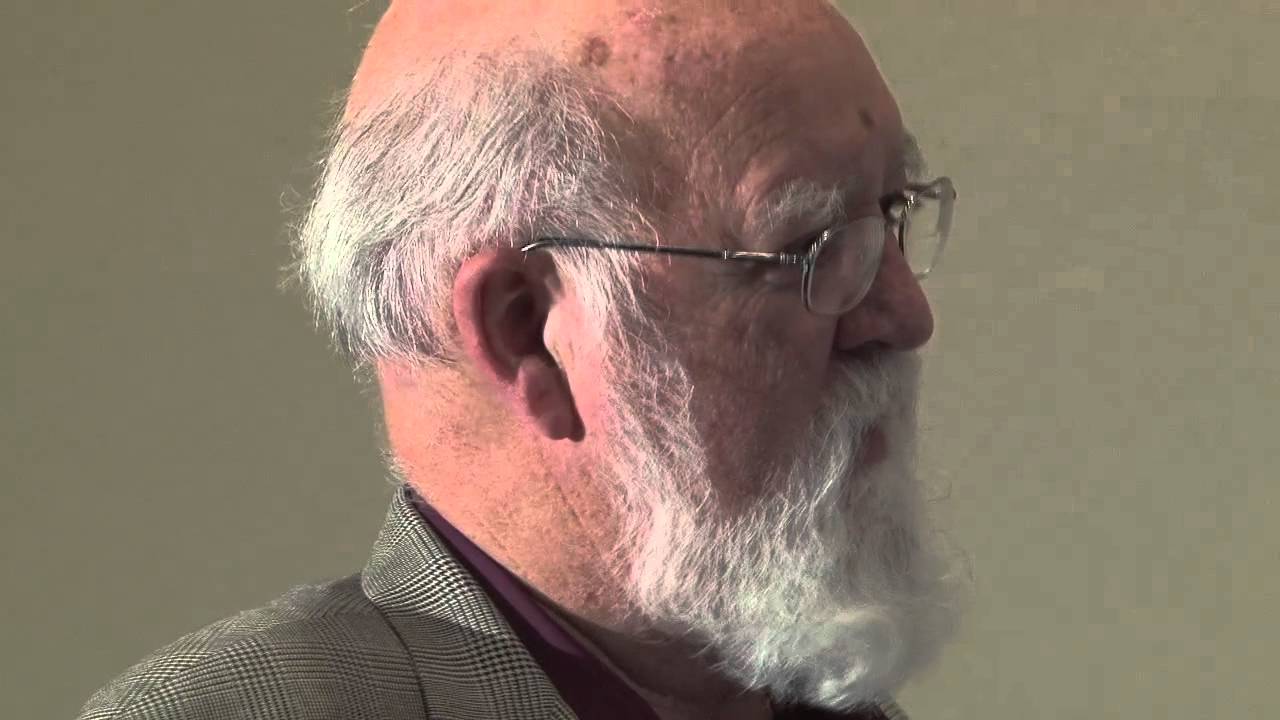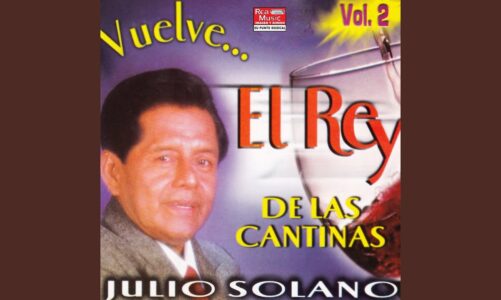ArtsUnimelb
Do recent discoveries of neuroscience prove that we have no free will? Some neuroscientists claim that free will is an illusion. But according to Prof Dennett, this claim rests on a mistaken understanding of free will and moral practices.
This is a public lecture presented at the Faculty of Arts, University of Melbourne, Australia, on Thursday 12 April 2012.
Source




"one with everything"… really? And how does someone become "one with everything"? Because I'm pretty sure that neither I, nor you, can step out of our subjective selves and tap into the universe…
I can try. Free will is not about determinism (as Sam Harris believes) but about moral competence. I can get a bank loan because I am considered morally competent to sign a contract – I don't have a mental illness nor am I under duress. This is the kind of free will we want, the freedom to make promises. Our relationships with other humans are based on this competence and on the idea of rewards and punishments for breaking our promises. You could consider it a kind of macro view.
25:50 – Language is all about getting what you want, hiding your real thoughts and so on. Mmmm – and if this is either a) a universal truth, or b) an alarming insight into your world view, what are we supposed to conclude about your motives in writing? I mean, are you committed to process and discourse, and will truly tell us how it seems to you? Or are you after another couple of books and a bigger farm?
28:30 "It is this strategic thinking which lies at the heart of the free will issue". It is this strategic thinking which lies at all of the horrors of the human condition, from criminal violence and civil war, through bad and manipulative sham marriages to the lamentable state of publication in the humanities. Indeed the whole point of a university is to have a place where "ascetic priests" tell the truth. A seminar at Tufts must be quite a thing: all that careerist word-weighing.
But… wasn't "just deserts" a typo?
Ok, nevermind. Looked it up lol.
I think Sam Harris doesn't have free will, but the rest of us do.
So you're saying that Hitler was a lefty. However, the modern euthanasia debate goes back to the 16th century. In the 20th cent Maud Ballington Booth of the Salvation Army supported it.
There are different kinds. Voluntary, or suicide, aided suicide, withholding care, forced. People, lefties or righties who suppor it value human life because they want people to have a decent quality of life, except perhaps for forced or involuntary.
It does not. You don't have free will but you are still responsible for your actions. Imagine a human-like robot. If it starts to attack people, it will be shut down or reprogrammed. With humans, we do the same thing, but shutting down is death sentence and reprogramming is prison (though it doesn't work as well as reprogramming :D). You see, every entity that is capable of taking actions (volountarily or not, with ir without free will) is capable of taking responsibility.
Your first sentence shows that you didn't understand my analogy.
So,
So, we have free will if,
So, we have free will if, by "free will", we mean something other than what most people mean, and most people will still think they have the sort of free will which Dennett thinks is an incoherent idea.
Free will is much more elusive that Prof Dennett would like to admit. What is free will? My own feeling of it, or someone else's assessment of it?
This seems to be too much of a nod to religulous moralizers. How can we advocate for the non-responsibility of adult women in cases like 'battered woman syndrome" whilst claiming that a minor or a retard (so long as they are male) who commits an especially heinous crime has moral competence?
Haven't watched the video, but based on Dennett's prior writings, he rejects what he calls "actualism" for emotional reasons. Not logical ones. See Darwin's Dangerous Idea. His view of "no free will" is surprisingly simplistic for a philosopher of his stature – he says that this would mean we should all go play golf. He wants his Elbow Room, the title of one of his other books. Not sure morality has anything to do with free will, by the way.
When a theist tells me God gave us all free will I say, "Of course we have free will! We have no choice!".
Dennett is a moron. Free will is only possible if the higher level controls the lower,
but that's not a feature of materialism, where supposedly the dirt under the rug control the stars..
My will is the sum of my impulses, that's all. I am subject to a great number of impulses, and they come from devil-knows-where. They are forced upon me. That cannot be freedom. "Free will" is just a euphemism for being driven along the road by mostly unknown forces.
Dennett has officially changed my mind on free will, so I am a compatibilist. I watched his talks on free will six months ago and was not persuaded. I read his book on free will ten weeks ago and it took be eight weeks of thinking to realize that he was right. (I have probably spent at least forty hours trying to figure out free will.) Compatibilism puts me at odds with most neuroscientists, which is kind of scary. However, I am now in sync with most philosophers.
Free will as moral competence. Professor Daniel Dennett at the University of Melbourne, Australia.
I'm interested in this idea of being wired wrong, and therefore not legally responsible. To me, the reason that I want people to be punished for breaking the law is that punishment acts as a feedback both to the perpetrator, and to others in society (as deterrence). If it is the case that this punishment works to uphold a moral society then, in my opinion, it should be done. If it is the case that punishment does not work, then a person should not be punished.
Hypothetical case: A man runs over someone with a car whilst sleepwalking. In this case, any sleepwalking person would not be aware of any punishment, so it does not act as a deterrence. The man already knows that running people over is wrong, so the punishment does nothing to make him a better moral person. There is no point in punishing the man, since punishment doesn't serve any function.
NATURE, NURTURE & PNEUMATURE ( a neo-logism. I love new words).
As a UNI-theist–the latter, for me, is the important and valuable component we call, consciousness, which enables me to say, "I am!", and then ask, "Are you?"… Are both of us free to say: " I am and I know, I do–that is, within certain limits–and I am free to be and to do and to grow, grow, grow!"
UNITHEISM?
G~O~D? (not to be confused with gods, or with the powers, ELOHIM, which claimed to be the one and only creator of darkness and light, chaos and order–good and evil)–It is that which, using all the evolutionary processes, Generates, Organizes & Delivers–an infinity of things within the eternity of time.
G~O~D, for me, is not a supernatural being–one with a personality and who lives within certain dimensions, like theists say God is supposed to be. Welcome to our group on Face-book. Interestingly, Warren Farr, an artist, and I (also into art)–www.unitheist.org–not having met, later discovered that we concocted the word at the same time.
magical free will? because physics really has the tools to measure consciousness at that level. doesn't that kind of arrogance amount to "argument from ignorance"
We come into existence without our consents. So how can we have 'Free will'?
not dualism but dual-aspect monism.
I se that as asking the wrong question.
I have a will, and as long as i am free its ok.
That is if i come into existence… in words for you, your words.
Often i se words used wrong and disconnected form the real life.
My will is a strong one, how i got that way is not an argument.
I don't think the problem of punishment (as opposed to prevention and restitution) has to do with a lack of accountability, but with holding the punisher accountable. ey risks to do more harm then good with eir action, and therefore should be kicked out of the moral actors club.
"There going to play 1000 games of chess" …
Audience member: "Wooooo!"
40:45
"Moral competence" is merely a deterministic product of our surroundings and our biology. Dennett is an idiot. Sam Harris is right.
I like the chess game idea when using the pseudo-random numbers, but I'm not sure about it when truly random numbers are substituted. Truly random combinations would produce randomly differing sets of "moves" for both A and for B; and (given that we're modeling humans) since A and B will be learning from each of their "turns" and the outcomes of their moves, A and B will also be updating their competencies. As a result, truly random numbers being the foundation of A and B's moves will result in a range of final competencies, and in some cases B's competence will exceed A's. In fact, unless A greatly exceeds B in competence to begin with, something that seems unlikely if they only differ in one move (which could have easily been a bias rather than a competency – e.g., A just likes to castle, and in the hypothesized case it turned out to be helpful), then the mean of A's distribution of competency outcomes will be barely higher than B's in the final count. In other words, A might be more competent in 501 of 1000 trials, but it seems just as significant that A will be less competent in 499 of the 1000 trials. That kind of outcome looks pretty random to me. So in that sense, taking the point of this thought experiment to be a justification of free will, I'm not sure that the experiment shows enough variation from randomness to justify free will.I think that in order to show meaningful variation from randomness and thus free will, you'd need to show that A made multiple moves throughout the course of multiple games that (1) led it A winning and (2) B did not make. I'm not sure, but I think that's a harder task.
Why can't he just keep talking as long as he wants to? Dan needs to get a podcast going where there isn't someone telling him he's out of time.